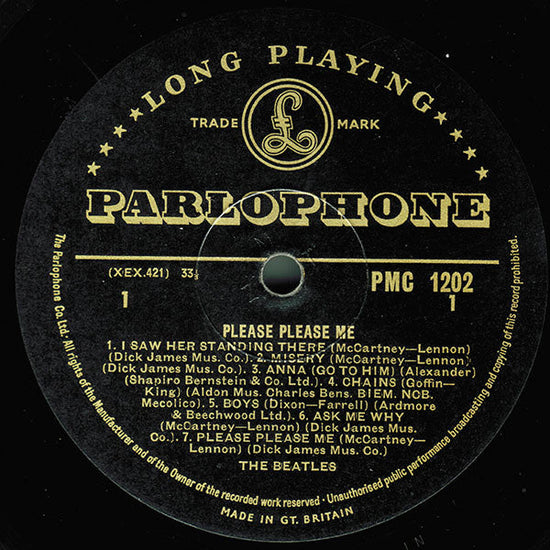Many reliable sources suggest that inventor and radio-pioneer Reginald Fessenden played a violin solo of the popular Christmas Carol ‘O Holy Night’ as the world's first radio broadcast on Christmas Eve of 1906.
In today's article, we take a closer look at the marvel of engineering that is the modern radio, and how it evolved when paired with the musical tastes of its time.
1 - The Inception of Radio

Even though the first song ever played on wireless radio was in 1906, the original concept and plan for the now-popular home utility was originally masterminded as far back as the 1890s - by an Italian inventor named Guglielmo Marconi.
Marconi began to put his ideas for short to medium-range wireless transmission into practice in 1985 when he became the first person to ever transmit a fully wireless More Code message - a feat that had only ever been achieved previously by making use of a special type of wiring that was used to connect two separate stations.
In the Spring of 1987, Marconi and his team then came to Somerset in the UK to expand on his ideas for wireless transmission. He and his cohorts set up transmitter and receiver equipment on the island of Flat Holm (in the Bristol Channel) and the Welsh headland of Lavernock respectively, and began to test.
The initial testing was unfortunately not particularly successful, but a few days of patience proved to be vital, as on May 13th, the dulcet tones of Marconi asking “Can you hear me?” was received loudly and clearly by the team in South Wales.
From this point, more and more tests were conducted, with distances between the transmitting and receiving teams becoming greater and greater. Once they had reached a transmission range of nearly ten miles, the Eureka moment struck.
2 - Radio's First Music

The first instance of ‘commercial’ music being played on the radio is associated with the experimental transmissions of Reginald Fessenden, a Canadian inventor and radio pioneer. Fessenden is believed to have conducted one of the earliest, if not the first, transmissions of music via radio waves.
On Christmas Eve in 1906, Fessenden made a historic broadcast from Brant Rock, Massachusetts. During this transmission, he reportedly played a piece of music on the violin and followed it by reading a Bible passage. The song he played on the violin is often cited as "O Holy Night," making it one of the first musical pieces ever transmitted and heard over the radio.
This event is significant because it demonstrated the potential of radio waves not just for telegraphic communication (which had been done before) but also for transmitting music and voice. Fessenden's experimental broadcast laid the groundwork for the development of radio as a medium for entertainment, news, and cultural dissemination. However, due to limited documentation from that era, details about the exact content of Fessenden's broadcast remain somewhat uncertain.
3 - Radio and Modern Music
Throughout the 1920s, various radio ‘stations began to pop up all over the globe. The first licensed station was known as KDKA, and broadcast from Pennsylvania in the USA. KDKA had also signed a contract with a local music distribution team to gain access to the rights to play certain music samples over their frequency - although at the time, only about 20 homes within the frequency's range were set up to receive transmissions like this, so it was by no means an overnight success.
Stations across the Americas and Europe followed suit by acquiring their own commercial music licences through the 1930s, 40s and 50s - until what we would recognise as ‘modern radio’ began to take shape in the mid-1960s, right as Rock 'n' Roll was starting to become popular.
4 - Key Dates in Radio's History
-
1895: Guglielmo Marconi sends the first wireless signal over a significant distance, marking the beginning of wireless communication technology.
-
1901: Marconi transmits the first transatlantic radio signal, demonstrating the potential for long-distance communication via radio waves.
-
1906: Reginald Fessenden conducts an experimental broadcast on Christmas Eve, believed to be the first transmission of music and speech over radio waves.
-
1920: KDKA in Pittsburgh, Pennsylvania, begins regular broadcasting, commonly regarded as the world's first commercially licensed radio station. Broadcasts of classical music became increasingly popular.
-
1922: The British Broadcasting Company (BBC) is founded, marking the start of the first public radio broadcasting service in the United Kingdom.
-
1933: Edwin Armstrong invents frequency modulation radio (FM Radio), a significant advancement in radio technology that improves sound quality and reduces interference.
-
1938: Orson Welles' radio adaptation of H.G. Wells' "The War of the Worlds" causes panic among listeners who believe a Martian invasion is occurring. This event highlights the power of radio and its ability to influence public perception.
-
1940s-1950s: The golden age of radio drama, comedy, and entertainment takes place, with popular shows captivating audiences before the rise of television.
-
1967: Tony Blackburn introduced the beginning of the BBC's first widely available, commercial Radio platform that was entirely music-dedicated. The first song ever played on the station was ‘Flowers in the Rain’ by The Move.
-
1970s-1980s: The emergence of FM stereo broadcasting and the growth of independent and niche radio stations diversify the radio landscape.
2000s-Present: The digital age introduces online streaming, podcasts, and internet radio, transforming the way people access and listen to radio content.







